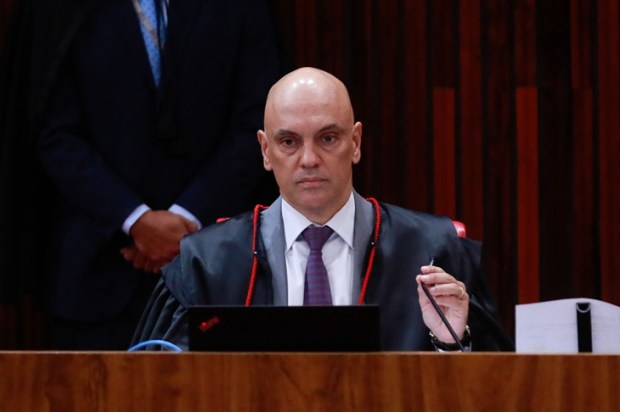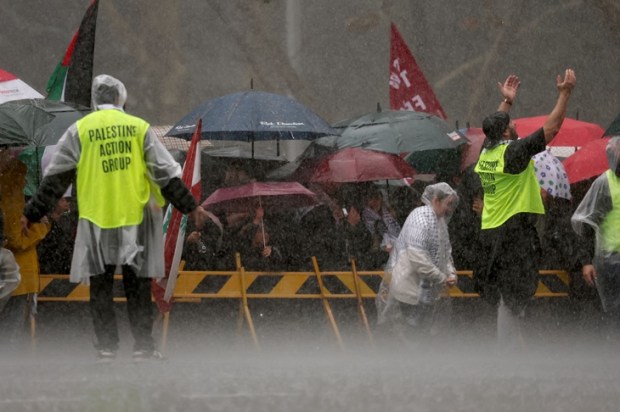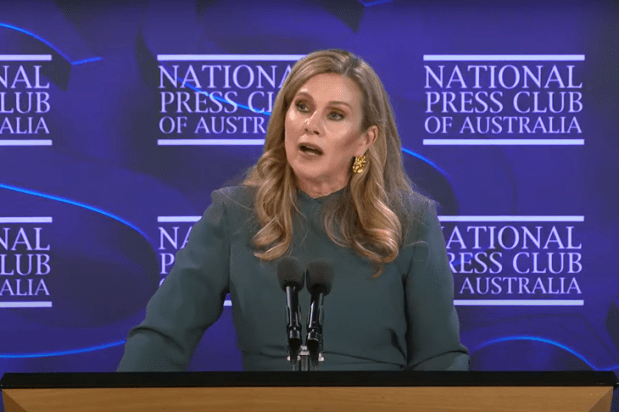Recently, Fulgence Kayishema was charged in South Africa for allegedly committing suspected war crimes in Rwanda in 1994. Three decades later, the genocide in Rwanda serves as a timely reminder of how difficult it is for the international community to engage in a meaningful oversight of human rights, despite the best of intentions.
While various sanctions and mechanisms are in place to deal with odious regimes, such as the military junta in Myanmar, it is increasingly obvious that there is a limit to the assistance we in the West can provide to democratic forces to facilitate positive change. The role of state actors, such as China, that support authoritarian regimes like that in Yangon, complicates the situation even further. Maintaining freedom and ensuring human rights is increasingly becoming a local responsibility.
One of the consequences of this geopolitical reality for Western governments keen to promote human rights adherence and democracy, is that a realistic approach to achieving free and fair societies needs to be apportioned in a balanced way.
While the collective West has an obvious role to play in this maintenance of human rights, what price should those in countries facing these challenges pay for a better future? The question as to what price people ought to be willing to pay for their freedom has been debated for centuries and continues to be relevant even in Australia in 2023.
It is difficult to admit that freedom is a relative concept and is seen in many different ways in many different societies. The temptation to see freedom as a once and forever achievement is an error of ideology. The freedom to bear arms is held to be a core freedom in the United States but has many terrible consequences.
Freedom from colonial rule has seen many societies thrive while others have become full of despair and oppression as a result. Freedom from a capitalist market economy in the USSR saw old class distinctions erased only to be replaced by new social hierarchies, ones that were not based on the ability to generate profits.
However we formulate our unique form of freedom, there is a general sense that what we want is a greater level of self-determining possibilities in our lives. We want to be free from the arbitrary temptations for the powerful to engage in activities that would diminish our ability to live life in ways that genuinely maximise happiness. This, of course, applies both to happiness for majorities and for minorities.
Freedom is an absence from cultural domination and there are a myriad of peoples who have identities that are not accommodated in nation states worldwide. Kurds, Tibetans, and West Papuans are but a cross-section of peoples who claim to have had their freedom truncated. Arguments for First Nations’ rights in Australia originate in a sense of historical grievance at the lack of equality on offer as much as in the reality that cultural-linguistic groups had forms of autonomous governance that equated to sovereign status.
Cultural domination then is integral to what people seek to avoid when they seek freedom. Rights to autonomous decision-making are both part of and separate to, rights to political freedom. Political freedom is hard to maintain when one is a second-class citizen by virtue of another social factor such as being the ‘wrong’ gender or having the ‘wrong’ sexual preference.
In the heady days of the French Revolution, the Irish lawyer John Philpot Curran argued that ‘it is the common fate of the indolent to see their rights become prey to the active’ and that liberty was a gift that was given by the Almighty on the condition that we remain ‘eternally vigilant’. Should we not, the immediate consequence is this type of cultural domination that Curran characterised as a form of servitude.
The war in Ukraine has made it very plain to see that the price of freedom is not cheap. It involves risk: risk to economic prosperity, risk to upsetting a peaceful life, and most obviously a risk to life itself. The fight against German and Japanese fascism and the Cold War battles that followed in the 20th Century made this all too clear to many Australian families impacted by war and losses of loved ones.
Australia, under Menzies, sought to limit the freedoms of political expression of citizens who were committed to a revolutionary overthrow of the existing order, both economic and political. Not all conservatively-minded people agreed with Menzies. Sir Walter Murdoch argued forcefully at the time of the referendum to ban the Communist Party that we should not have the right to punish a person for their opinions. Such a position is, by definition, persecution.
The former UK MP, Ann Widdecombe, who has held very many illiberal opinions in her time, nevertheless, has argued very strongly for the value of arguing against offensive or irrational causes rather than for their blanket silencing. Australians showed in 1951 that they have a sense of the eternal vigilance that is necessary for the maintenance of liberty.
The broader Western bloc of nations must also retain this commitment in the face of a rising China. Similarly, both voters and the politically influential in emerging powers such as India and Indonesia need to be keenly aware that freedom in the form of constitutional government and the rule of law needs to be maintained and isn’t just a simple one-off purchase from the dealership.
As we enter the countdown to the Voice referendum, we all would do well to respect the positions of those we consider on the other side. The ‘Yes’ vote has a genuine argument that without being eternally vigilant and enshrining First Nations status in our constitution, hard-won freedoms will not lead to better social outcomes. At the same time, the ‘No’ case argues that we do not have an unbreakable political system and that there is a risk that there will be severe unintended consequences as a result of politicised judicial interpretation resulting from what the Voice actually means. That we are all eternally vigilant to our freedoms and aware of other versions that sail in a similar direction is most definitely a good thing.

























